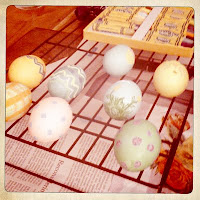Mikhail lay slumped over his work, fast asleep.
Remnants of tea kissed the bottom of his glass, papers sprawled and candles snuffed out. Somehow the objects captured the current essence of Mikhail himself.
Day after day, the men descended down a a coffin-like staircase into the bowels of the earth, the only light from flaming lamps and the mouth of the mine above their heads. The fact that he had his wits about him was more a miracle than a blessing.
Shura gazed upon him now— overworked, worn. It was late, and, as was usual for the last few months, Mikhail had returned from the mines only to spend the remainder of his waking hours poring over his papers.
It was becoming more and more difficult to deny that he was physically withering. His nose bled constantly, his extremities always cold, the skin all over his body had lost elasticity. He was growing progressively more lethargic, and sometimes, at night, he would riot against the cramping in his extremities—his limbs wriggling as worms might fight a hook.
But still, she gazed upon him and stared, breathless for a moment. What was it about Mikhail as he lay curled at his desk, enveloped in the mining shirt of coarse, tarnished linen and fraying trousers? What moved her so as she saw him sleeping there; his visions sprawled before him, laid out like a map of the universe? Drawings, diagrams and plans, everything he aspired to build, invent or create, set out before him in neatly coded piles.
Her nightdress had fallen open slightly, and she gathered it around herself as she tread lightly over weighty volumes, candles that had extinguished down to nubbins, and endless sheets of scribbled, coded papers. She was careful not to startle him.
Mikhail’s left hand was outstretched, having fallen almost elegantly atop his notebook like a small sculpture, as if he had collapsed into this slumber in the middle of a thought. The fingers were still holding his pencil, the side of his palm blackened with lead as it always was from the hours of writing from left to right in Russian—he always preferred to write in Hebrew for that very reason and she smiled to herself at these details that made up their marriage.
Her eyes moved toward the hand and she could not help but peak at the smudged scrawl below it. It was a coded telegram from the West which Mikhail had decoded lightly below the type. It simply read:
Empirio-criticism.
Below it, in his own hand Mikhail had made a note:
The People are Important.
That was all it said. She could hear the steady throbbing of his heart, the quiet purr of his breathing, and she was at once torn apart with tenderness, unable to keep from pressing her ear to his back to listen.
“
What?” He sat up suddenly,
“
What is it?” He was at once alert.
“Darling, you must come to bed…” She carefully marked and folded his notebooks.
He glanced out the window into the inky blackness,
“What is the hour?”
“I don’t know. But you must rest. Besides,” she smiled coyly, “I am freezing all alone in there…” and extending her hand to him. He placed his lead-smudged hand in her own and she kissed him as she helped him rise, shifting her hand into his trousers. He clutched her, and, with defeat, he moved away.
“…I can’t.”
This was another recent, more devastating development.
“It is alright, my love…”
But it wasn’t. Not for him.
“—This letter. I must finish. It is important.”
“Tomorrow, Mikhail. It can wait.”
Thus, he followed his wife to bed.

























